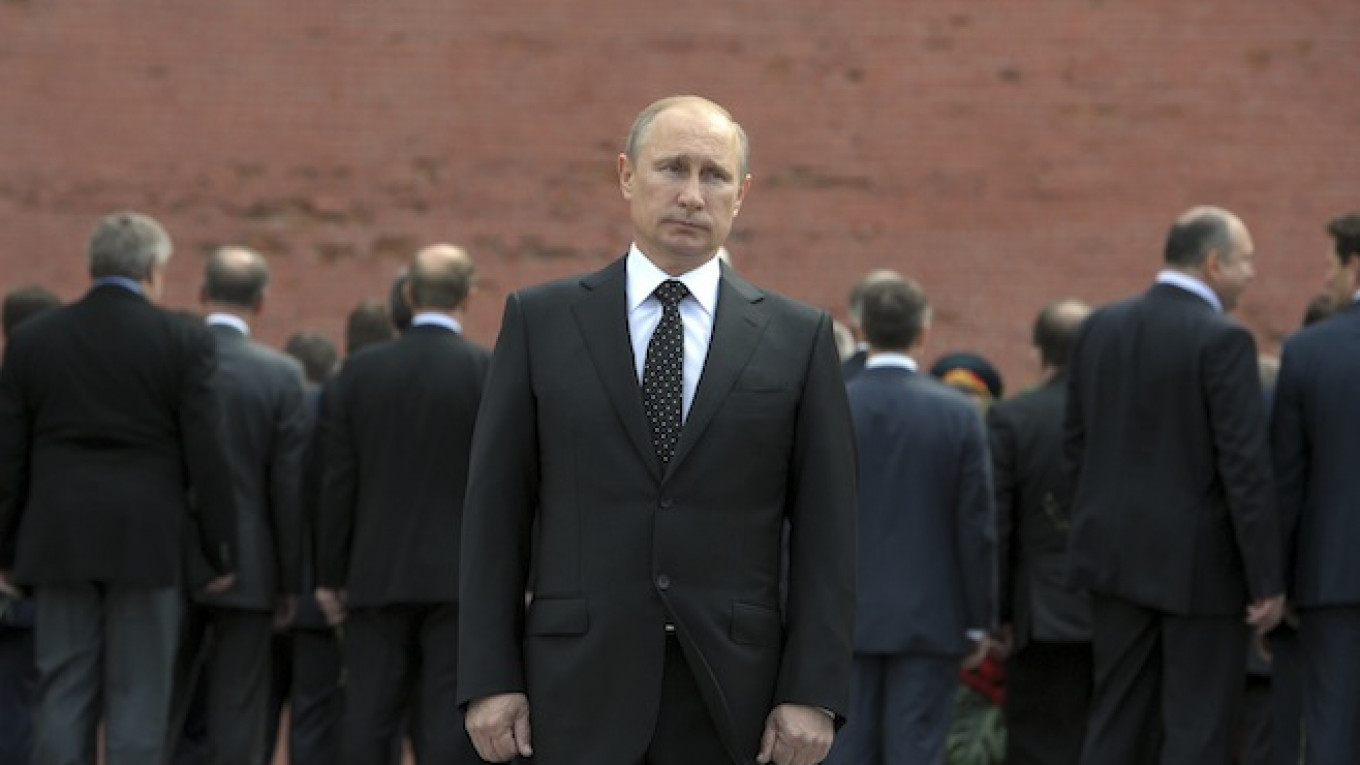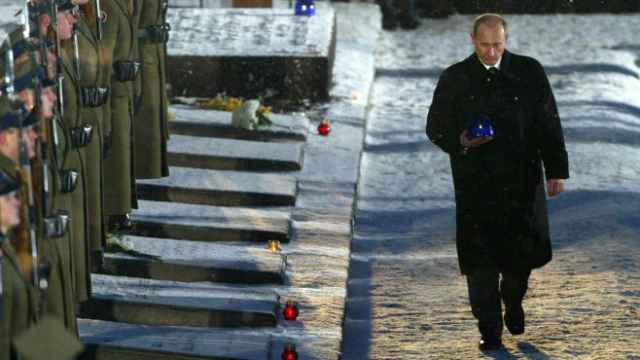Russian President Vladimir Putin will not travel to a ceremony in Poland marking the 70th anniversary of the liberation of the Auschwitz Nazi death camp, the Kremlin said Tuesday, a decision that reflects a chill in Russian ties with the West.
Putin's spokesman, Dmitry Peskov, said on Ekho Moskvy radio that the president hasn't received any invitation, adding that Putin's schedule is very tight and he doesn't have a window for travel.
The organizers of the ceremony, the Auschwitz Museum and the International Auschwitz Council, said there had been no specific invitations but nations contributing funds to the site — including Russia — had been asked whether they were going to attend.
The situation is particularly awkward since the Nazi death camp was liberated by Soviet troops and a large share of some 1.5 million victims of Auschwitz were Soviet citizens, including Jews and Russian prisoners of war.
Putin did attend the ceremonies marking the 60th anniversary of the camp's liberation, in 2005.
The apparent reason for his non-attendance this time lies in the Ukrainian crisis. Poland has been one of the harshest critics of Russia's annexation of the Crimean Peninsula and Moscow's support for a pro-Russia insurgency in eastern Ukraine.
Amid the worst strain in Russia's ties with the West since the Cold War, Putin has restricted his foreign travel. He received a chilly reception at the G20 summit in Australia in November, and left the venue early.
Auschwitz Museum director Piotr Cywinski told The Associated Press that invitations weren't sent to any country and denied that the procedure was aimed at snubbing Putin.
The organizers had informed embassies of EU nations and donor countries that the observances will be taking place on Jan. 27 and asked them to say whether they would be sending delegations and at what level.
French President Francois Hollande and his German counterpart Joachim Gauck are among state leaders and members of European royalty expected for the ceremony, according to a preliminary list of attendance published by the museum.
Russia is to be represented by Ambassador Sergei Andreyev, according to the list.
Valeria Perzhinskaya, spokeswoman for the Russian Embassy in Warsaw, confirmed that it has been notified of the observances and is waiting for a decision from Moscow on who will attend.
Cywinski said the organizers decided in the spring to center the observances on the ever-shrinking group of Auschwitz survivors, and there would be no speeches by politicians. Some 300 survivors are expected at the ceremony, half of them from Poland.
Peskov, Putin's spokesman, acknowledged that the Kremlin was aware of the organizers' decision not to send specific invitations and dodged questions about the reasons behind the Russian leader's decision not to attend, citing Putin's busy schedule. He denied that the Russian president felt hurt by some Western leaders cold-shouldering him.
A Message from The Moscow Times:
Dear readers,
We are facing unprecedented challenges. Russia's Prosecutor General's Office has designated The Moscow Times as an "undesirable" organization, criminalizing our work and putting our staff at risk of prosecution. This follows our earlier unjust labeling as a "foreign agent."
These actions are direct attempts to silence independent journalism in Russia. The authorities claim our work "discredits the decisions of the Russian leadership." We see things differently: we strive to provide accurate, unbiased reporting on Russia.
We, the journalists of The Moscow Times, refuse to be silenced. But to continue our work, we need your help.
Your support, no matter how small, makes a world of difference. If you can, please support us monthly starting from just $2. It's quick to set up, and every contribution makes a significant impact.
By supporting The Moscow Times, you're defending open, independent journalism in the face of repression. Thank you for standing with us.
Remind me later.






